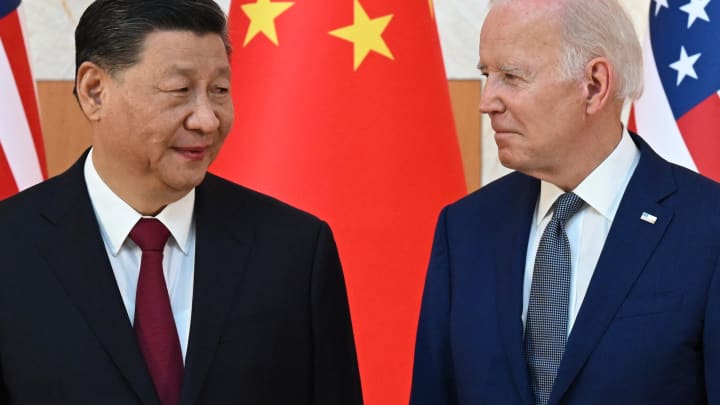
Half of Americans polled widely view China as the biggest threat facing the U.S., a new Pew research center survey revealed.
In an open-ended question, Americans were asked to name any country as the greatest threat to the U.S. — 50% named China.
This was almost three times more than the share who named Russia (17%), said Pew in its latest survey published on Thursday.
While it's difficult to compare responses from year to year, Pew noted that "Americans have not always seen China as the top threat to the United States."
"When we last asked a question of this sort in 2019, equal shares of Americans pointed to China and Russia as the greatest threat facing their country," it said.
The survey reflects Americans' view of China have become more negative over time — particularly since 2020, added Pew. The poll covered more than 3,500 adults in the U.S. from March 20 to 26 2023.
"The share of Americans with an of China has risen from 79% in 2020 to 83% in 2023," said Laura Clancy, a research analyst at Pew research center.
"In that time, the center had asked Americans about several specific issues including the partnership between China and Russia, which 62% call a very serious problem for the U.S.," she told CNBC via email.
U.S.-Chinese relations recently hit their lowest point in years. suspected Chinese surveillance balloon which flew over the United States.
The battle for technological supremacy between the two economic superpowers has also led to punitive measures like trade and investment restrictions in .
Beijing's closer ties with Russia since the start of the war in Ukraine, as well as China's continued aggression over the Taiwan Strait, also roiled relations between the two countries.
"There are a number of problems, we've asked about that Americans can name … in the U.S.-China relationship, including China's policies on human rights and its growing technological power," said Pew's Clancy.
"Generally speaking, people who see any of these problems as very serious are also more likely to have negative views of China."
Large majorities of those polled also saw China as an economic and national security threat. 78% said Beijing posed a great of threat to the U.S. economy and 73% to security.
In contrast, only 36% found Russia posed a great deal of threat to the economy and 66% to security.
The survey findings come on the back of a flurry of diplomatic engagements between the two countries in recent weeks, aimed at soothing ties.
Last week, veteran U.S. diplomat met with Chinese President Xi Jinping during a surprise visit to Beijing, according to state media. The warm welcome that Kissinger got in Beijing was seen as the latest example of to influence Washington.
The Biden administration has also sought to restart high-level contacts with China through recent high-profile diplomatic visits.
Secretary of State Antony Blinken, Treasury Secretary Janet Yellen, and special presidential envoy for climate have all visited Beijing recently.
with Xi that was described as robust but conciliatory. His original travel plans for February were .
Tense relations between both sides could be eased if there was greater effort to listen to the younger generation of U.S. experts and scholars on China, noted Chinese political analyst Zhou Zhixing.
"It is worth mentioning that these Americans have studied all aspects of Sino-US relations, and they are fluent in Chinese, which is better than their predecessors," .
"A group of young strategists in the United States who really understand China are emerging," he added.
"Our problem is, first, we don't really understand these people; second, we don't have such a corresponding group of young people. This gap is terrible!"




